BrightCHAMPS is an online live-learning platform targeting kids ages 6–16 with courses in coding, robotics, financial literacy, English, and more. In today’s competitive education market, families often compare platforms on quality, cost, and outcomes. This article closely examines BrightCHAMPS – from real customer reviews and pricing to how it works and future plans – and compares it with alternatives (especially My Engineering Buddy) to help parents and students make an informed choice.
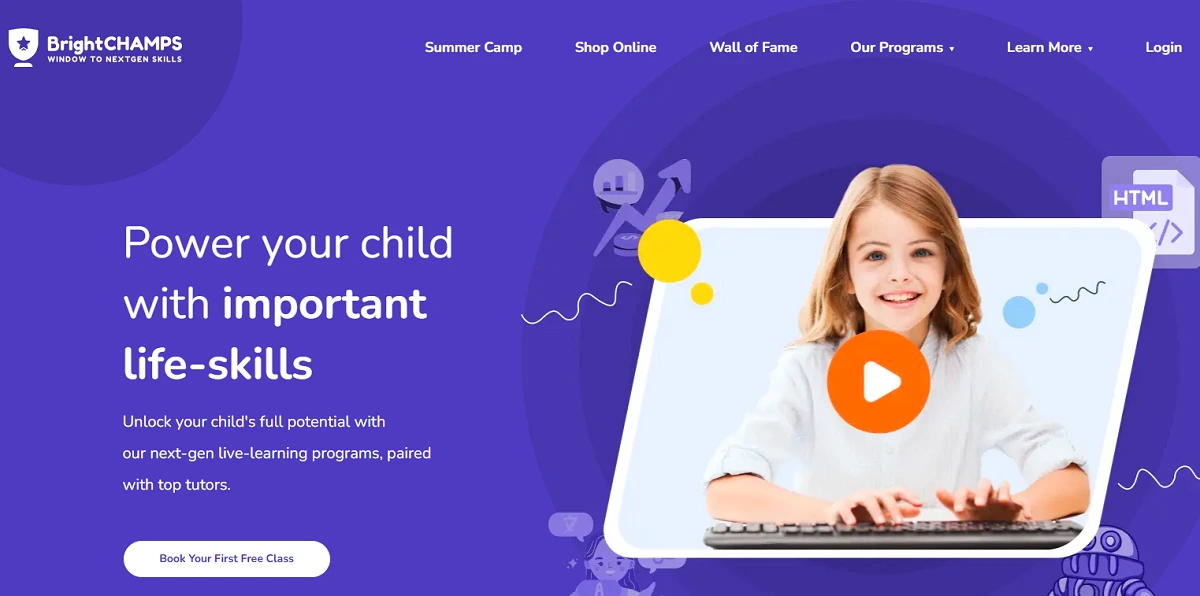
BrightCHAMPS Reviews and Testimonials
BrightCHAMPS has mixed feedback online. Scam-advice sites rate it highly: for example, ScamAdviser says the website is “legit and safe” with an average score of **4.6/5** based on over 2804 reviews. However, user review aggregators tell a different story. Slashdot/SourceForge lists it at only **1.4/5 stars (10 reviews)**.
Positive Reviews: Some parents praise the program. For instance, one review says “My experience… has been great. My kid learnt a lot… The teacher pays attention… the platform gives flexibility to take classes as per our schedule”. Another wrote that instructors were “phenomenal” and the platform “nice and organized”.
. These testimonials highlight engaged teachers and fun, interactive lessons.
Negative Reviews: Others express strong complaints. For example, one parent reported a “fraud” experience: after paying in full, the company allegedly dragged out refunds for 5 months and never returned the money. Another said BrightCHAMPS “lied in their presentation” about refunds (only 30 days actually refundable), calling it “blatantly misleading”. Several reviews on Slashdot explicitly warn parents not to enroll, citing poor teaching quality and unfulfilled refund promises. One summarizes: “Communication is poor… for months we got no response or refund”.
Overall Ratings: Review sites vary. BrightCHAMPS advertises a Trustpilot score of 4.6/5 (500+ reviews) on its booking page. Scam-detector shows a high trust index and 4.7/5 stars on TrustProfile. But aggregators of customer feedback report far lower scores, reflecting the conflicting user experiences. In summary, BrightCHAMPS has both enthusiastic supporters and angry detractors. Parents should consider both sides: it has engaging classes and top tutors (as claimed on its site), yet some users report administrative or quality issues.
Pricing
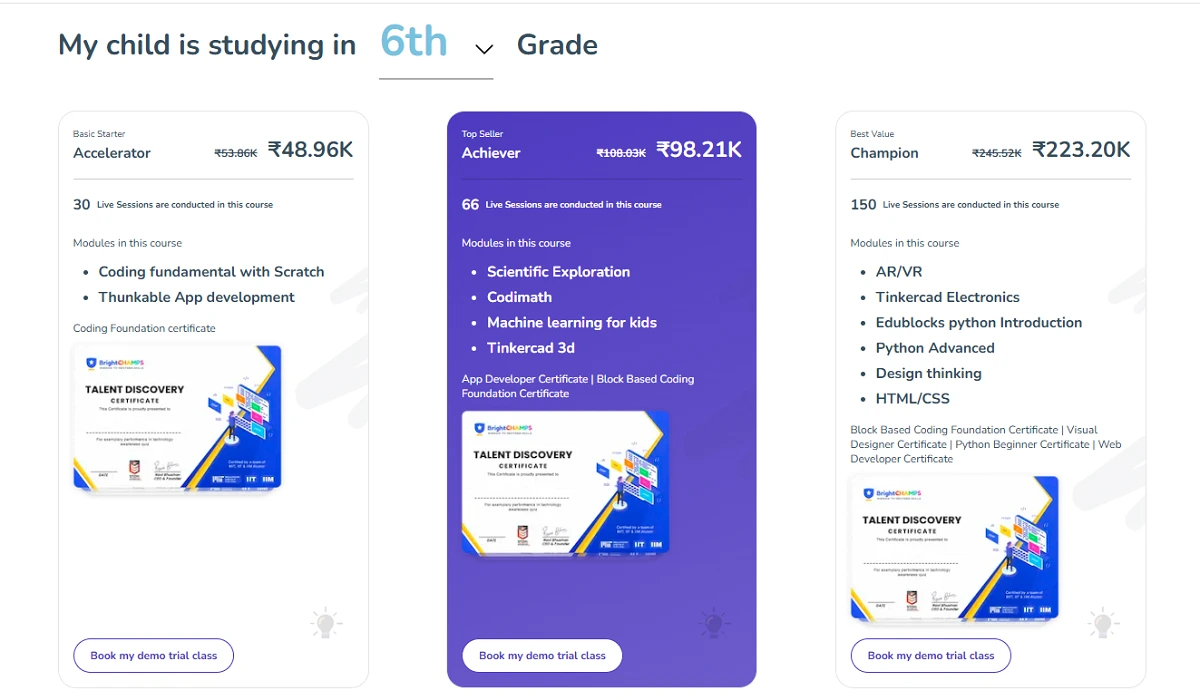
BrightCHAMPS pricing varies by course and age group. According to their online shop, a typical **60-minute class costs about $16–$25**. For example, one coding course (ages 9–16) is listed at **$16.60 per class**, while a web development class (ages 9–11) costs **$24.83 per class**. Bulk packages (e.g. 10–15 classes) may reduce the per-class rate, though discounts aren’t obvious on the site.
Free Trial: BrightCHAMPS advertises a free demo coding class for new students. Parents can book a “first free class” to try out the platform before paying.
Refund Policy: Officially, BrightCHAMPS offers a 100% refund of unused classes if requested within 10 days of payment
policy.brightchamps.com
. Beyond that 10-day window, no refunds are permitted. In practice some reviewers say this policy is strictly enforced. One complaint noted that although sales reps promise full refunds for cancelled classes, the fine print actually limits refunds to the first month only. Another parent waited months for a refund that never came.
Hidden Costs: There are no obvious hidden fees advertised. All charges are class-based; hardware kits (like robotics kits) are non-refundable. However, be aware that the advertised refund terms can be confusing to new customers (as mentioned in reviews).
Overall, prices are on par with other live tutoring services, but parent feedback suggests carefully reviewing the refund policy. BrightCHAMPS is higher-priced than free resources, and users have noted that any promised “trial” or “demo” requires booking and paying for a class first.
Alternatives
There are several other tutoring and coding platforms worth considering besides BrightCHAMPS:
My Engineering Buddy (MEB)
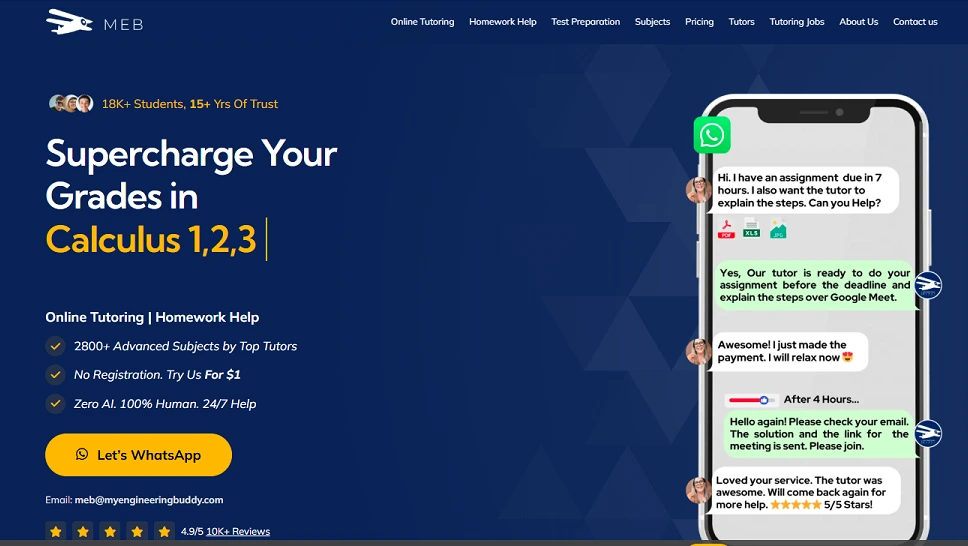
My Engineering Buddy targets older students and engineering topics. It offers **online tutoring and homework help in 100+ subjects** (physics, calculus, thermodynamics, engineering design, etc.). Unlike BrightCHAMPS’ kid-focused coding programs, MEB specializes in college-level STEM help. MEB is on-demand: students post questions and get quick answers or one-on-one sessions. Its strengths include flexible 24/7 support and high tutor quality. Notably, MEB has very positive reviews – 4.8/5 average from 285 students – and 97% of users recommend it. (Students praise “top tutors” and fast, clear homework help.) Pricing is typically per assignment or hourly. For example, industry analysis shows typical online engineering tutoring runs ~$30–$50/hr. In short, MEB is strong in advanced STEM subjects with a proven track record, making it ideal for high school/college students needing homework help.
Outschool
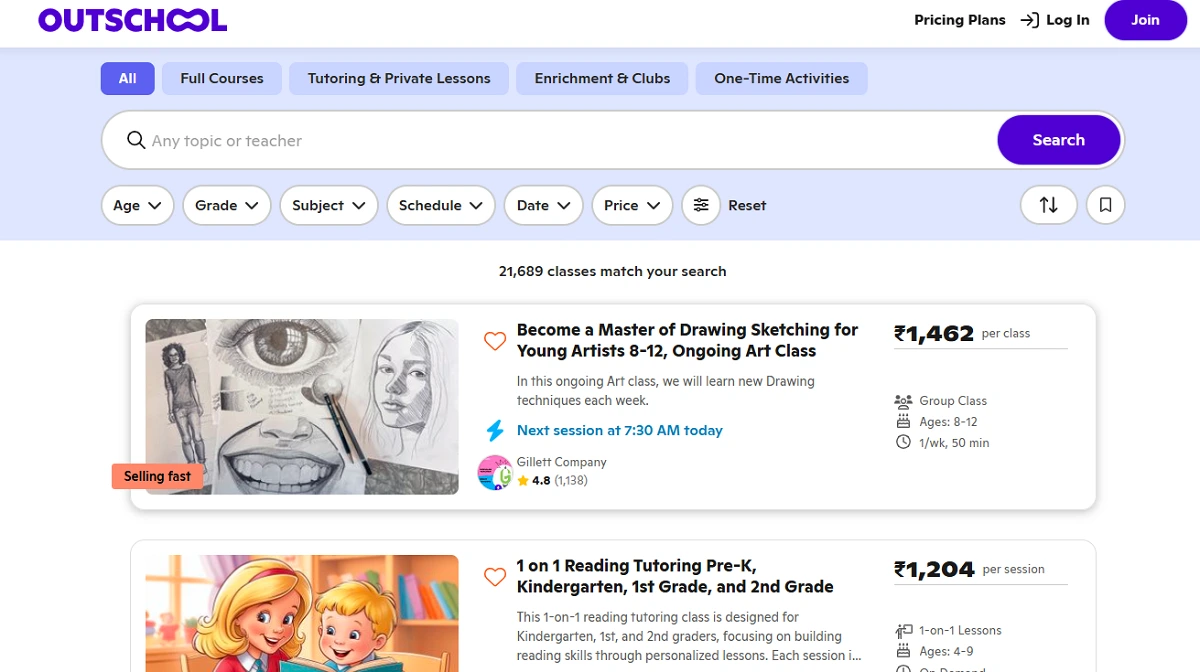
Outschool is a large US-based marketplace for live online classes (ages 3–18) covering thousands of topics. Unlike BrightCHAMPS’ fixed courses, Outschool lets you choose from many independent teachers. You can find coding classes, math lessons, and almost any hobby or academic subject. Outschool’s strengths are the variety and flexibility: parents can pick class topics and schedules. It also offers free and paid options. (Some reviews praise the unique, fun classes; others note quality varies teacher-to-teacher.) While Outschool isn’t focused solely on coding, it’s a popular alternative for creative, self-paced learning.
Khan Academy
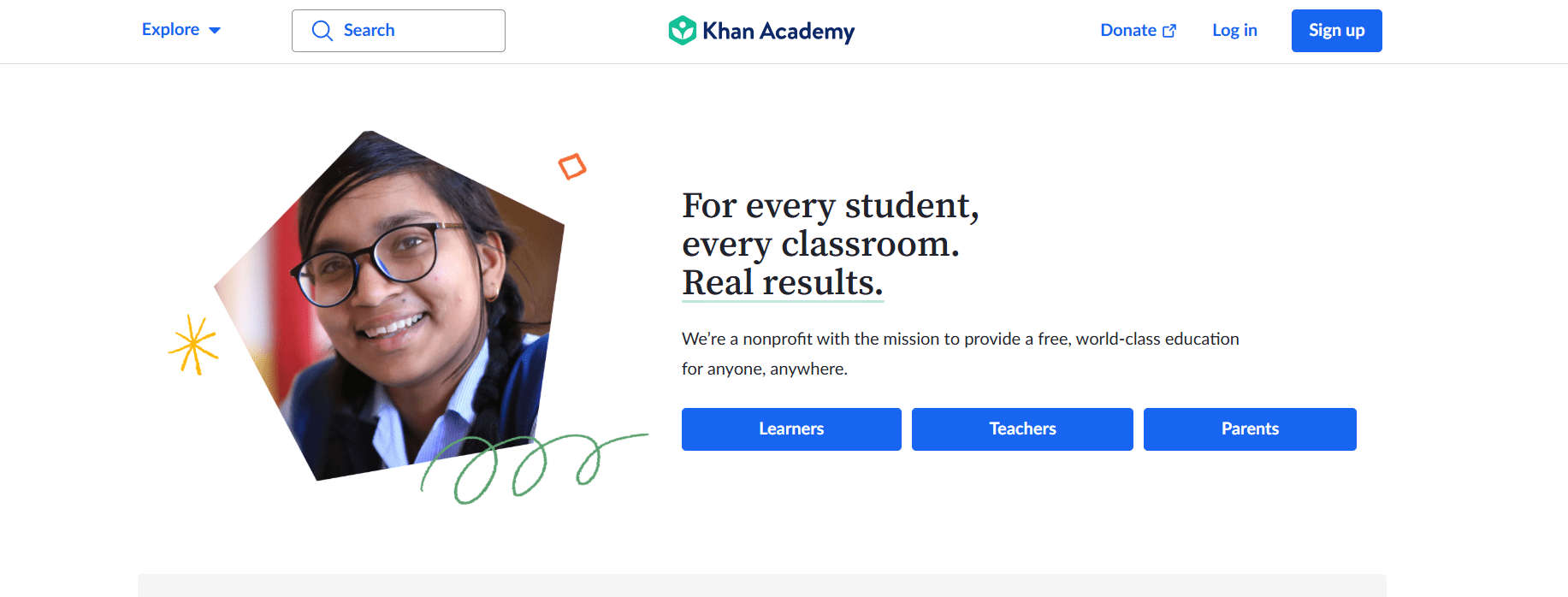
Khan Academy is a free nonprofit platform offering lessons from kindergarten through early college. It covers math, science, computing, and more with video lectures and exercises. Unlike BrightCHAMPS’ live tutors, Khan is self-paced and free of charge. Its mission is “provide a free, world-class education for anyone, anywhere”. As an alternative, it’s excellent for fundamentals (e.g. algebra, programming basics) but doesn’t provide live instructors or certificates. Many parents combine Khan Academy with tutoring for personalized help.
codeSpark Academy
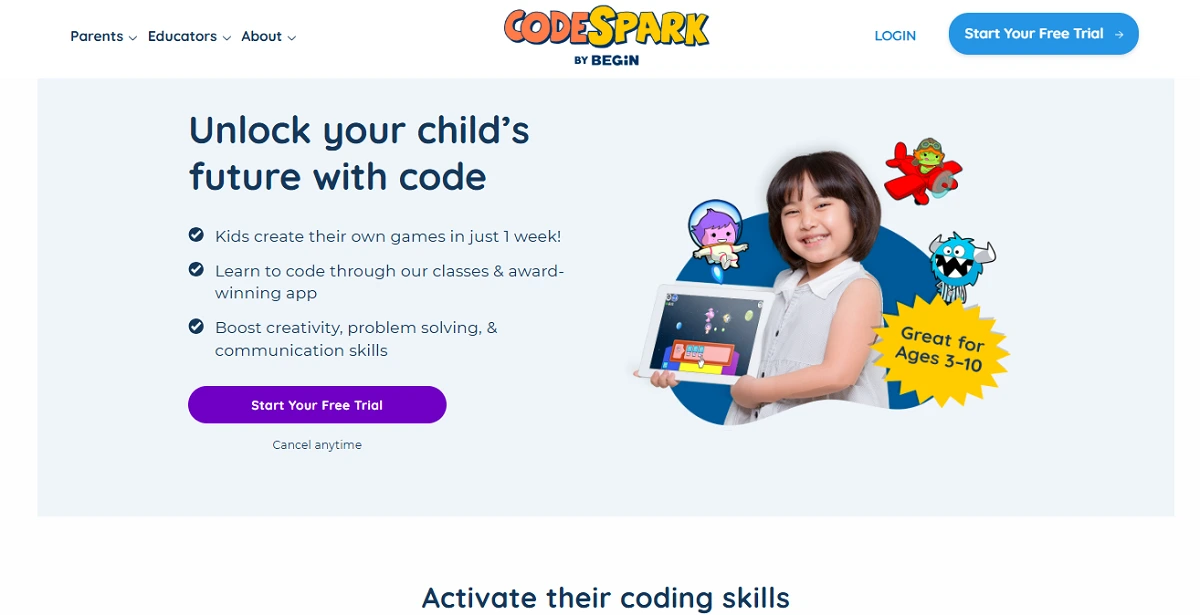
codeSpark Academy teaches coding to young children (about ages 5–9) through a “no words” interface using characters called the Foos. It’s highly interactive with games and puzzles. codeSpark boasts it has engaged over 30 million young learners in 190 countries. Parents choose it for its game-like environment and progress tracking. It is much cheaper (subscription-based app) and is great for beginners. The downside compared to BrightCHAMPS is that it’s not live tutoring – it’s self-driven with some parent supervision needed.
Code Avengers
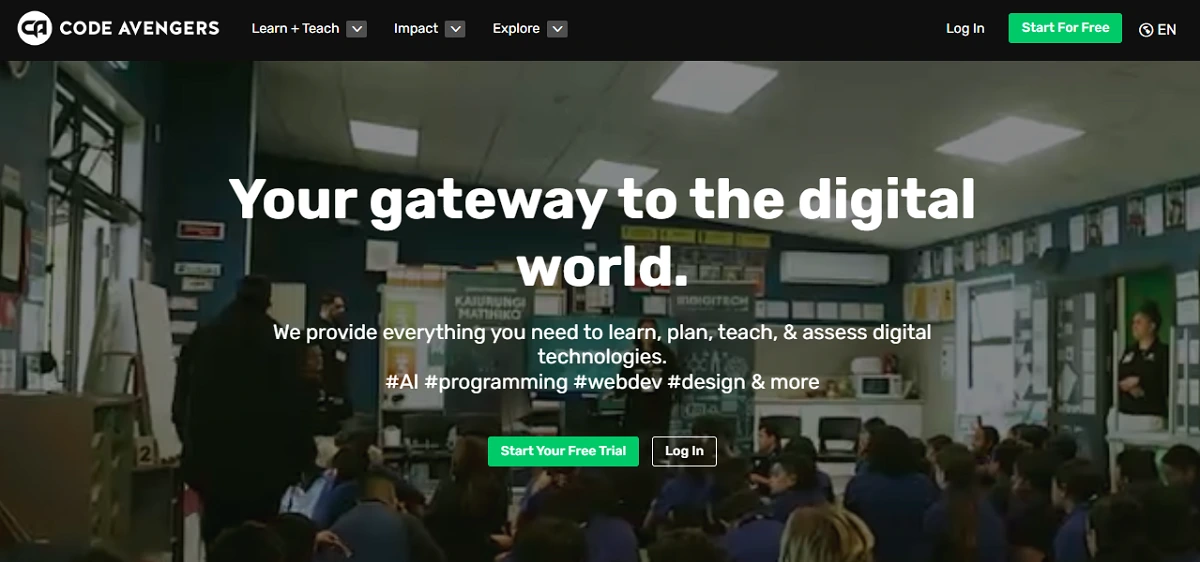
Code Avengers provides structured online coding courses for ages ~5–18. It covers web development, Python, and even AI basics with self-paced lessons. It’s widely used in schools: “over 15,000 schools” use Code Avengers curricula. The platform offers both individual and classroom subscriptions. Compared to BrightCHAMPS, it’s more curriculum-driven and less one-on-one. It costs about $20/month, making it an affordable alternative for learners who want a school-like coding course rather than live tutoring. Each of these alternatives has its own focus: BrightCHAMPS for personal live classes for kids, Outschool for variety of live classes, Khan for free self-study, codeSpark for young coders, and Code Avengers for school-aligned coding. My Engineering Buddy stands out for advanced subjects. Choosing the best platform depends on the student’s age, subjects, and learning style.
How It Works
BrightCHAMPS operates a straightforward online tutoring model:
For Students: Parents start by signing up on the BrightCHAMPS website or booking page. Students can often book a free demo class to try it out. After enrolling, you schedule one-on-one live sessions with expert tutors at available times. Classes are typically 60 minutes long and held via an interactive video platform. Students can access course materials and worksheets online. The platform promises flexibility – parents report being able to reschedule lessons easily to fit their schedule. Payment is per class or package of classes.
For Tutors: Tutors go through a multi-step selection and onboarding process. Interested instructors submit applications and resume details, then pass a screening interview. Shortlisted candidates complete a telephonic assessment and mock teaching rounds to demonstrate their skills. After training, tutors attend a final demo class onboarding session where they teach an example lesson. Those who succeed join the BrightCHAMPS “elite” team. Tutors then set their availability and conduct lessons with enrolled students. BrightCHAMPS provides training materials and a teacher manager for ongoing support.
Overall, BrightCHAMPS tries to ensure quality by certifying teachers and providing interactive tools. The process is similar to other live tutoring platforms: hire top tutors through vetting, let parents book classes online, then hold live 1:1 sessions.
Company Information
BrightCHAMPS was founded in 2020 by CEO Ravi Bhushan. Headquartered in Singapore (with roots in India), it quickly raised over $63 million in funding and reached a valuation around $500 million by late 2021. The company says it has 100,000+ students and 1,000+ teachers on the platform (with operations in over 30 countries, including the US, UAE, and Indonesia). BrightCHAMPS’ mission is to empower kids with “next-gen skills” (like coding, AI, and financial literacy) across its courses. According to the company, it now supports learners in 12+ languages, even allowing children to take classes in their local language
media.startupcentrum.com
. Its vision is to become a leading, impact-driven edtech organization “empowering 2 billion kids” globally. Unique Features (Claimed): BrightCHAMPS promotes features like expert-certified tutors, flexible scheduling, and a comprehensive curriculum. Its website highlights “top 1% teachers” and an interactive platform for hands-on coding and STEM projects. For example, the site shows badges like “Get an expert certification” and “Flexible class schedule”
learn.brightchamps.com
. They also highlight innovative ideas: CEO comments suggest they plan a “Stack Overflow for kids” Q&A community and emphasize multi-language support.
USP (Claimed vs Actual)
In marketing, BrightCHAMPS claims an all-in-one STEAM learning solution for kids. However, user reviews reveal a gap between claims and reality. For example, BrightCHAMPS promises a 100% money-back guarantee for unused classes within 10 days, but parents complain the refund terms are much stricter in practice. They advertise “flexible scheduling” and “personalized attention,” and indeed some reviews praise attentive tutors. Yet other students report being “bored” or having to switch teachers mid-course. The company also touts high quality and “top” teachers, but some users felt the instructors were inexperienced. In short, the official USPs (expert tutors, easy refunds, fun classes) often face scrutiny: satisfied students exist, but dissatisfied ones highlight broken promises around refunds and teacher quality.
Drawbacks (from Reviews)
Key drawbacks noted by users include: – Refund difficulties: Customers say BrightCHAMPS rarely honors refunds beyond the strict 10-day window. Many report long waits or outright refusal when seeking money back (some calling it “fraud”). – Customer support and communication: Several reviews mention poor support. One review states “communication is poor, people are not reachable… no response or refund even after months”. This suggests parents sometimes struggle to get help when issues arise. Varied tutor quality: Although the platform vets tutors, some users encountered less effective teachers. Complaints include uninspiring lessons or teachers who quit mid-course. Pricing and Policies: Some feel the pricing is high for kids’ content, especially when refunds are limited. The contrast between initial sales promises (“refund anytime”) and the small official window has frustrated customers.
Comparison with My Engineering Buddy
BrightCHAMPS and My Engineering Buddy serve different audiences and needs. BrightCHAMPS is geared toward younger learners (ages 6–16) in coding, robotics, and general STEM. In contrast, My Engineering Buddy focuses on older (high-school to college) students and engineering subjects. For example, MEB advertises help in Physics, Calculus, Thermodynamics, Statics, etc., which BrightCHAMPS does not cover.
Pricing: BrightCHAMPS charges by class (~$16–$25 per 60-min session). MEB’s pricing is more custom (often per assignment or hour). Industry norms suggest engineering tutoring costs ~$30–$50/hr. In practice, MEB customers report it as “reasonably priced,” often paying by package.
Testimonials: BrightCHAMPS reviews are mixed, whereas MEB’s are overwhelmingly positive. Reviews.io reports 4.8/5 stars from 285 reviews for MEB. Customers praise fast homework solutions and helpful tutors on MEB, while BrightCHAMPS has significant negative reviews on refund and service.
Specialization: MEB’s strength is complex subject help on demand (24/7 Q&A model), while BrightCHAMPS is structured live classes for kids. If your child needs advanced STEM help or homework answers, MEB might be better. For a fun coding class at a fixed schedule, BrightCHAMPS fits more.
Overall, MEB excels in in-depth academic support (at a comparable or lower cost) with strong customer satisfaction, making it a compelling alternative for students beyond middle school.
Customer Support and Policies
BrightCHAMPS’ support channels are primarily chat and email through their platform. In practice, responsiveness has been a concern. Some parents report that support staff are slow to respond or unhelpful – as one reviewer lamented, “BrightCHAMPS support staff is not reachable… Worst service I have ever seen”. The refund policy is clear but strict: full refunds are only for cancellations within 10 days of payment. After 10 days, even unused classes are non-refundable, and no partial refunds are allowed (except the limited exit interview process in policy). By comparison, My Engineering Buddy provides more flexible policies. MEB has a published refund rule: for homework help, they refund any portion of work not yet done (e.g., if 30% of an assignment was completed, 70% is refunded). They also allow canceling tutoring sessions up to 24 hours in advance without penalty. Importantly, MEB promises fast issue resolution: disputes are resolved within “2-3 days” (up to a week) after contacting their helpline. In short, MEB’s policy is more customer-friendly and transparent, whereas BrightCHAMPS’ strict 10-day rule has led to complaints of unfunded cancellations.
Global Reach and Localization
BrightCHAMPS boasts a wide international footprint. It claims operations in 30+ countries (including the US, UAE, Indonesia, Vietnam, and more). They offer classes in 12+ languages, reflecting local support (for example, Indonesian, Vietnamese, Arabic, etc.). In fact, one source notes BrightCHAMPS enables children to “attend online classes in any local language of their choice”. This localization is a selling point for global families. My Engineering Buddy also serves an international audience but focuses on English-speaking markets. MEB specifically mentions students in the US, UK, Canada, Australia, and Gulf countries. It appears to operate primarily in English and targets regions with large STEM demands. In summary, BrightCHAMPS has a broader language range and presence in Asia and the Middle East, while MEB is popular in Western and Gulf regions. Both are global platforms, but BrightCHAMPS’ multilingual support may better serve non-English-first families.
Future Plans
BrightCHAMPS is actively expanding its offerings and tech. A major recent move was the acquisition of Edjust (January 2025). Edjust is an AI-powered K12 learning platform. BrightCHAMPS plans to integrate Edjust’s capabilities, creating a new vertical for traditional subjects (math, science, English) alongside its tech curriculum. The company also announced new initiatives: its Edjust team will work on “augmented and virtual reality” learning experiences. On the AI front, BrightCHAMPS has launched “AIChamps” courses. These teach generative AI tools (like ChatGPT) and Python to kids, aiming to keep the curriculum cutting-edge. The site promotes a “Deep Dive into Generative AI” class for students. Looking ahead, BrightCHAMPS appears committed to both global growth and technology integration. The Edjust deal aims to reach “30 geographies” and enhance customer engagement through data-driven personalization. Management has also hinted at a peer-learning community (a kind of “Stack Overflow for Kids”) though details are pending. For tech-savvy families, these moves signal BrightCHAMPS will continue emphasizing AI and interactive digital learning tools in the near future.
FAQs
What is BrightCHAMPS?
BrightCHAMPS is an online learning platform for children ages 6–16, offering live 1-on-1 classes in coding, robotics, financial literacy, English, and other STEM subjects. Founded in 2020, it connects students with certified tutors through scheduled virtual lessons. The goal is to build “next-generation” skills via interactive projects.
Is BrightCHAMPS legitimate and safe?
Yes, BrightCHAMPS is a legitimate, venture-funded company. Third-party checks (e.g. ScamAdviser) rate its site as legitimate and safe. It has raised substantial funding and is backed by reputable investors. However, “legitimacy” also depends on service: some users praise it, while others report issues. Generally it’s not a scam, but potential customers should review refund terms closely due to mixed experiences reported.
How much does BrightCHAMPS cost and is there a free trial?
Costs depend on the course and package. Typically a single 60-minute class costs about $16–$25. Packages of 10–15 classes may lower the per-class price. The platform does offer a free demo class: parents can book one trial session (usually 1 hour) so a child can experience the program before full enrollment. No subscription is required; you pay per class or pack.
What is BrightCHAMPS’ refund policy?
BrightCHAMPS provides a 100% refund for any unused classes if you request it within 10 days of the original payment. This applies only to credits or classes not yet used. After 10 days from payment, no refunds are granted, even if you haven’t started all classes. (There is no pro-rated refund after this period.) In practice, some customers have found this short window restrictive, so it’s important to cancel early if you change your mind.
What age group and subjects does BrightCHAMPS cover?
BrightCHAMPS is designed for children ages 6 through 16. Its courses include: CodeCHAMPS Programming basics (e.g. Scratch, Python, game dev) RoboCHAMPS: Robotics and hardware kits FinCHAMPS; Financial literacy for kids LingoCHAMPS: English communication skills AIChamps: (recent) Generative AI and programming MathCHAMPS: Math and logic skills Each course runs in multi-week modules. Essentially, it covers K-12 STEAM subjects with certified tutors guiding the lessons.
BrightCHAMPS vs My Engineering Buddy (MEB): which is better?
It depends on your needs. BrightCHAMPS is focused on younger students (K–8) learning coding, robotics, etc., through scheduled live classes. My Engineering Buddy is geared toward high-school and college students, especially in engineering, physics, math, and other advanced topics
Subjects: If you need help with school subjects (thermodynamics, calculus), MEB covers that – BrightCHAMPS does not. If you want your child to learn block coding, app development or STEM projects, BrightCHAMPS specializes in those.
Pricing: BrightCHAMPS charges per class ($16–$25). MEB pricing is flexible (often per assignment/hour) and is generally considered affordable for homework help.
Reviews: MEB has an excellent reputation (4.8/5 from 285+ reviews). BrightCHAMPS has mixed reviews.
In short, for elementary coding courses BrightCHAMPS is a solid option, but for high school/college engineering help, My Engineering Buddy is likely the better choice.
Are there good alternatives to BrightCHAMPS?
Yes. Besides My Engineering Buddy, consider these:
codeSpark Academy: A children’s coding app (ages 5–9) with gamified lessons. It boasts 30 million users worldwide.
Khan Academy: Free math, science, and coding lessons for K–12 and early college. No live tutor, but very comprehensive and free.
Outschool: A marketplace of live online classes for kids on thousands of topics (including coding). Highly flexible and parent-reviewed.
Code Avengers: An online coding curriculum for ages ~5–18; used in over 15,000 schools. Subscription-based, with structured courses.
Varsity Tutors / Tutor.com: Broad tutoring sites covering all grades, though mainly older students.
Cuemath / WhiteHat Jr: Other paid coding platforms; (WhiteHat Jr is expensive and geared to coding, Cuemath to math).
Each alternative differs in focus and pricing. For example, Khan Academy is free and self-paced, while Outschool and codeSpark are good for younger kids. Always check reviews and try demo classes when possible to find the best fit.
Conclusion
BrightCHAMPS is an ambitious platform with engaging coding and STEM courses for kids. It has raised significant funding and continues to expand its curriculum (including new AI courses). However, it comes at a premium price per class and has received mixed customer feedback, especially around refunds and support. Parents looking for strong programming education for younger children may like BrightCHAMPS’ curriculum and tutors. For those seeking alternatives – especially for older students or different price points – My Engineering Buddy is a top contender. MEB offers broad subject coverage (100+ topics) with 1-on-1 homework help, and it has overwhelmingly positive reviews (4.8/5). Its pricing is competitive for engineering tutoring. In summary, BrightCHAMPS is a legitimate option for K–8 students interested in coding, but families should compare it with other platforms (like MEB) to find the best match for their educational needs and budget.
******************************
This article provides general educational guidance only. It is NOT official exam policy, professional academic advice, or guaranteed results. Always verify information with your school, official exam boards (College Board, Cambridge, IB), or qualified professionals before making decisions. Read Full Policies & Disclaimer , Contact Us To Report An Error

